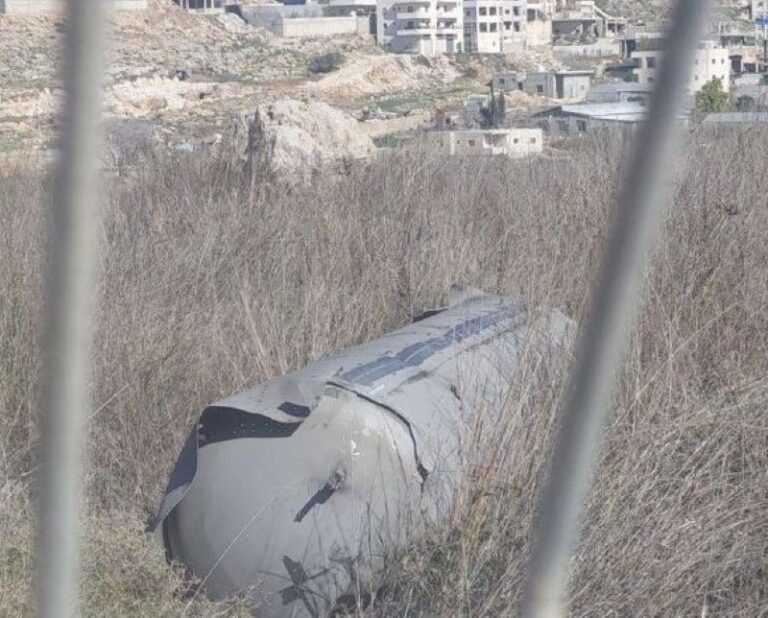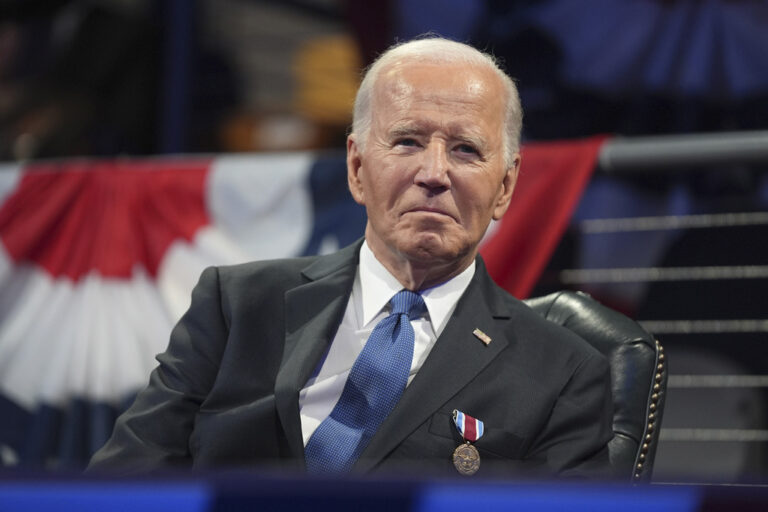 President Barack Obama’s videotaped message on Friday offering “new beginnings” to the Iranian people and its leaders was sent to Middle East broadcasters with Farsi subtitles. But it might just as well have included Russian or German or even Mandarin versions.
President Barack Obama’s videotaped message on Friday offering “new beginnings” to the Iranian people and its leaders was sent to Middle East broadcasters with Farsi subtitles. But it might just as well have included Russian or German or even Mandarin versions.
At least as much as the Iranians themselves, the audience that the White House hoped to reach with the message included governments in Europe, Moscow and Beijing, which the administration is hoping it can bring together in an international effort to pressure Tehran to abandon its nuclear program, its ballistic missile development, and its funding of anti-Israeli terror groups around the region.
Obama’s dramatic appeal, delivered during the Iranian springtime holiday known as Nowruz, emphasized in the most direct message yet his willingness to deal directly with Tehran in an atmosphere of “mutual respect.” Obama framed the issue in his message as a “choice” facing Iranian leaders — a place in the “community of nations” that cannot be reached through “terror or arms.”
Iranian officials’ initial reaction to the message was cool. “We welcome the wish of the president of the United States to put away past differences,” a spokesman for Iranian President Mahmoud Ahmadinejad, Ali Akbar Javanfekr, told AFP in reaction to Obama’s message.
“But the way to do that is not by Iran forgetting the previous hostile and aggressive attitude of the United States,” Javanfekr said. “The American administration has to recognize its past mistakes and repair them as a way to put away the differences.”
Privately, senior administration officials, including Secretary of State Hillary Clinton, doubt that Iran will accept the U.S. overtures — at least not on terms or on a timetable acceptable to the White House.
To persuade Iran to halt before it actually achieves a nuclear weapon capability and longer-range missiles, officials are all but convinced it will take concerted pressure initially in the form of tougher sanctions and other economic steps by the U.S. and other major powers aimed at squeezing Tehran in a way that the Bush administration, because of its strained relations around the globe, was unable to achieve. During the Bush years, the United Nations Security Council approved several rounds of sanctions, but balked at steps that would have had far-reaching impact on the Iranian economy and the regime.
To have any hope of achieving a unified international stance against Iran, the administration knows it has to be seen as pursuing a different approach than the Bush administration — one built more on the idea that the U.S. is open to engagement with Tehran under the right conditions.
By making the offer in as sincere a way as possible and having it rebuffed, administration officials believe, they have a much better chance of drawing in other governments, who were always reluctant to join the Bush administration in a process they feared could eventually lead to an attack on Iran aimed at destroying its nuclear facilities.
Obama’s tone throughout his message to Iran’s leader his was respectful but firm. He did not mention or even allude to the option of military action–either by Israel or by the United States—that always hangs in the background. Instead Obama talked only about diplomacy.
“My administration is now committed to diplomacy that addresses the full range of issues before us, and to pursuing constructive ties among the United States, Iran and the international community. This process will not be advanced by threats. We seek instead engagement that is honest and grounded in mutual respect.”
Avoiding threats is another way that Obama is differentiating his approach to Iran from his predecessor’s. His first big chance to begin this process will be next month when he goes to the NATO summit in early April for meetings with European allies. Javier Solana , the European foreign policy chief, applauded Obama’s message to Iran, calling it “very constructive,” The Associated Press reported. Mr. Solana, who has spearheaded Europe’s dealing with Iran, also expressed his hope that it would “open a new chapter in relations with Tehran.”
If Obama can actually achieve the international consensus he seeks to raise the pressure sufficiently to change Iran’s behavior, he may never have to reach the point of seriously considering military action to knock out its suspected nuclear facilities. Some of his advisers, including Defense Secretary Robert Gates, have signaled publicly that they are dubious about a military confrontation with Tehran, especially with U.S. forces engaged in Iraq and Afghanistan. But others have raised concerns that Iran’s enrichment activities is getting close to producing sufficient fissile material for a nuclear weapon—a development with far-reaching consequences for security in the Middle East.
At this point, the most that can be said about Obama’s view is that he has not taken the military option off the table. But he could find himself having to consider a U.S. strike at some point in the coming year if his strategy of engagement sputters, as many officials expect, and additional sanctions do not work, either. The pressure will grow even more intense if Israeli officials, many of whom believe Iran is closer to achieving a nuclear weapon than the United States does, presses for military action or threatens to strike on its own.
Obama may hope his offer strengthens moderates within the Iranian regime, but whether that happens will not be clear until after Iran’s election this summer in which Ahmadinejad is seeking re-election against reformist candidates.
Israeli President Shimon Peres, whose position is ceremonial, delivered his own message on Farsi-language radio service that also appealed to the Iranian people but at times used the kind of harsh language that Obama avoided. He dismissed the country’s leadership as “religious fanatics,” adding “You can’t feed your children enriched uranium.”
(Source: Politico)











7 Responses
The real Obama is slowly but surely showing its ugly face.
A pereh adam is a pereh adam is a pereh adam! No matter how nicely you try, you can NOT sit down with a wild animal and think you can work out your differences over a cup of tea. America has not khopped this reality yet. Incredibly, there are even many in Israel who still don’t khop. If Bush didn’t take out this vile creature, we can be sure that obama wont. That leaves it to be done by Israel and/or HaKadosh Baruch Hu. We are living in very serious times of chevlai Mashiach. It behooves everyone to think about this and work on improving themselves in all areas (midos, learning, tzedaka, t’fila, etc.) so that we should merit HaSh-m’s help and rachamim in dealing with these evil people and these perilous times.
Welcome to the United States of Kumbaya.
I can’t believe The Telepromter would make Obama say this!
If Pres. Obama can be taken at face value and is willing to be confrontational if absolutely necessar — this may be a very wise move. It gives Iran a chance to save face, which is extremely important in Islamic and Middle Eastern culture, and is coupled with the ability to recuit world economic support if the Iranians will take another course. This is a “last ditch” attempt to avoid war and as such is worth a try. Just as long as we don’t wait until it is too late.
5,
Obama will only say what the Teleprompter tells him to say. He cannot think for himself on his own two feet.
This is a very good move on his part. Iran is in elections season and Ahmedinejad is out of favor with his people. The other three candidates are all less fanatical than him, especially with regards to Israel. Most Iranians also want improved relations with the US, and Obama made it clear that Ahmedinejad’s methods of terror and threats will not advance that goal. This outstretched hand may affect Iranian elections if the other candidates play their cards well.